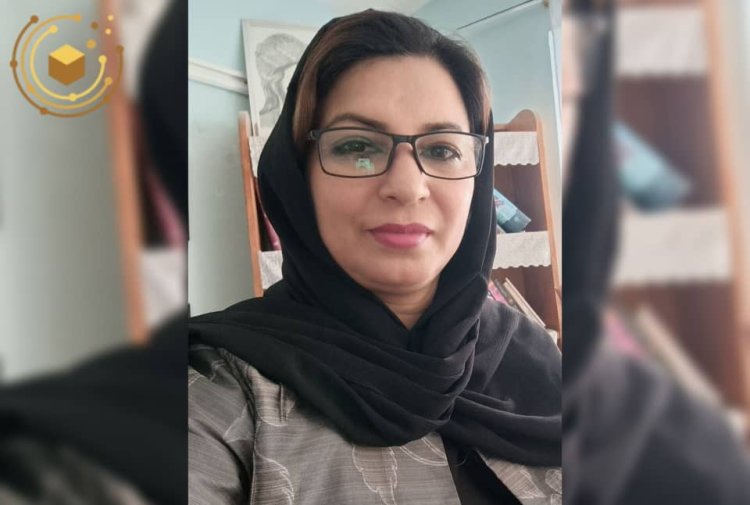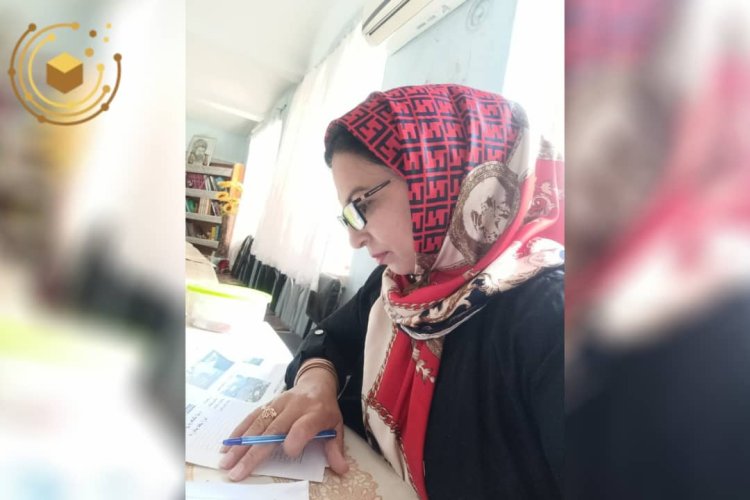Sheema Qazizadeh: A Dedicated and Prolific Writer and Teacher in Herat
The story “The Scarecrow and the Farmer” by Sheema Qazizadeh, a writer and educator from Herat, has been selected among the 12 winning entries in the 23rd annual Sadeq Hedayat Literary Competition.
Born in 1980 in Herat, Sheema Qazizadeh earned her bachelor’s degree in Persian language and literature from Herat University. Since 2002, she has been serving as a teacher and head of the Persian Language and Literature Department at Mehri Herawi High School.
Qazizadeh’s journey as a writer began in her teenage years when she attended the clandestine Sūzan Talayi (Golden Needle) sewing classes during the first Taliban regime in Afghanistan. These classes, held under the guise of a sewing school, were a hidden sanctuary where girls learned creative writing instead of sewing, taught by faculty members of Herat University’s Faculty of Literature, including the esteemed Professor Mohammad Nasir Rahyab.
With over 20 years of experience in poetry and storytelling, Qazizadeh has earned numerous accolades in the literary field. Recently, her story “The Scarecrow and the Farmer” was honored in the Sadeq Hedayat competition. In 2021, her story “The Broken Mirror of Fate” won third place in the inaugural Akram Osman Literary Prize, while her short story “The Girl Who Was Never Born” secured second place in the Deep Sea Reflection writing competition.
Qazizadeh’s collection of short stories, titled “Jasmine and Memories”, was published in the winter of 2021 by Bahra Cultural Center in Herat. The anthology consists of nine short stories across 197 pages, including Jasmine and Memories, Mother, The Black Boots, The Girl Who Was Never Born, The Circle, The Journey, The Last Word, The Fish Seller, and History.
These stories vividly reflect the cultural and social challenges of her era, rendered with a compelling and inquisitive narrative style.
In the introduction to this collection, Professor Mohammad Nasir Rahyab wrote:
“Sheema seeks to write in a psychoanalytic style, diving deeper into introspection. As a result, her short stories, like Jasmine and Memories, grow richer and more profound. Despite their length, the recurring motifs, reflections, and foggy atmospheres lend her stories a distinct charm. At times, she ventures into symbolism. For instance, her choice of jasmine in the title symbolizes despair and the central character’s struggles with hopelessness. As the dark layers of her psyche brighten, the story invites readers to uncover its layers of meaning. Characters like Ghadir Tokhmok or the Fish Seller are symbols of dormant facets of life, which the author seeks to unravel, offering insights into the philosophy of existence, futility, betrayal, and more.”
Sheema Qazizadeh’s work continues to enrich contemporary Persian literature, leaving a lasting impression with her deeply introspective and symbolically rich storytelling.


